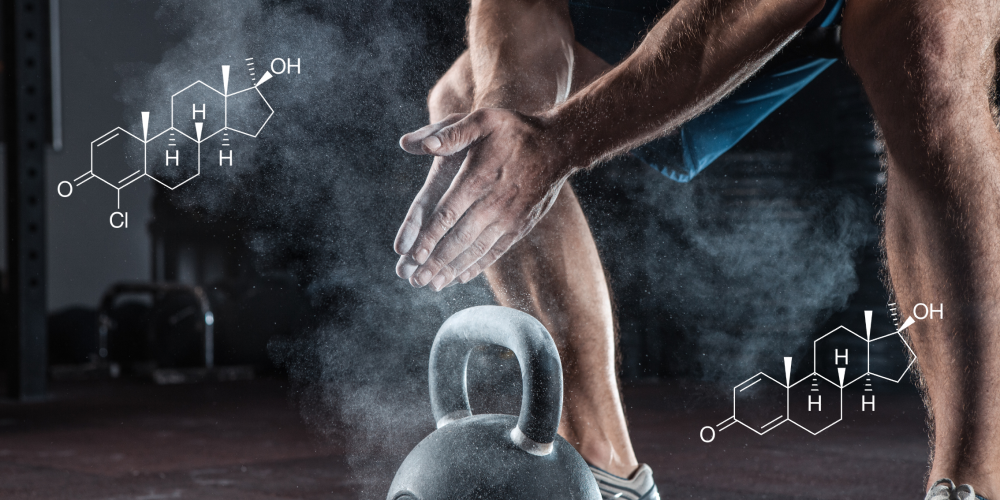Metformin and Rapamycin for performance and longevity
Bodybuilding and longevity traditionally don’t go too well together, as we all know chasing size and strength often comes at some cost of long-term health. But what if certain compounds could extend lifespan while also enhancing muscle retention and performance? Let’s talk about Metformin and Rapamycin, two drugs initially developed for diabetes and organ transplant patients that are now being used in the realm of performance and longevity. Could these compounds be used to stay leaner, healthier, and more anabolic for longer?
Metformin
First, we’ll talk about Metformin, a widely used drug for type 2 diabetes, but research suggests it has far-reaching effects beyond blood sugar control:
- Increases insulin sensitivity: improves glucose uptake, reducing fat gain and promoting muscle efficiency;
- Activates AMPK (energy sensor pathway): enhances mitochondrial function and fat oxidation as a source of energy;
- Lowers systemic inflammation: may reduce oxidative stress, protecting muscle tissue from breakdown and reducing likeliness to suffer an injury;
- Inhibits mTOR (in some cases): while mTOR activation is key for muscle growth, chronic overactivation will accelerate aging.
After looking at its effects, here’s how Metformin might benefit bodybuilders and athletes:
- Fat loss: by improving insulin sensitivity, Metformin may reduce fat accumulation while promoting better nutrient partitioning at the same time;
- Recovery: lower inflammation levels may enhance recovery from intense training;
- Longevity: some studies suggest Metformin users have longer lifespans, likely due to reduced metabolic stress and lower cancer risk;
- Muscle retention: while it mildly inhibits mTOR, it may help preserve muscle mass by improving mitochondrial efficiency.
However, Metformin is not free of potential downsides:
- Inhibits mTOR: while this can be good for longevity, it may slightly hurt hypertrophy processes if used immediately or closely post-workout;
- Decrease in VO2 max: some evidence suggests endurance performance may take a slight hit;
- Gastrointestinal issues: some users experience bloating or discomfort.
Rapamycin
Now let’s move onto Rapamycin, an immunosuppressant originally used for preventing organ transplant rejection. However, it is now being studied for its powerful anti-aging properties:
- mTOR modulation: unlike Metformin, which subtly influences mTOR, Rapamycin directly inhibits it, slowing down cellular aging;
- Autophagy: stimulates the body to “clean up” damaged cells, improving recovery and metabolic health;
- Longevity benefits: shown to extend lifespan in mice and potentially in humans;
- Anti-catabolic: may help prevent muscle breakdown under stress.
Here’s how Rapamycin may be of interest to athletes and bodybuilders:
- Recovery and longevity: by controlling excessive mTOR activation, Rapamycin may prevent overtraining effects and improve long-term health;
- Fat loss and insulin sensitivity: enhances metabolic efficiency, helping to maintain a lean physique and build muscle;
- Joint and soft tissue: may reduce chronic inflammation, improving resilience against injury.
Again, there are potential downsides to using Rapamycin:
- Reduced anabolism: Rapamycin’s powerful mTOR inhibition can slow muscle growth if not cycled properly;
- Careful dosing: higher doses suppress immune function, so careful use is essential;
- Questionable efficacy: most research focuses on longevity, not performance enhancement.
To finish things off, here are a few tips on how to use Metformin and Rapamycin for both gains and longevity:
- Use Metformin on rest days or in the evening to maximize its metabolic benefits while avoiding post-workout mTOR inhibition;
- Use Rapamycin in low doses once per week rather than daily to prevent excessive muscle loss while still promoting longevity;
- Training and diet: these compounds work best when paired with proper resistance training and high-protein nutrition;
- Periodization: carefully cycling phases of high mTOR activation (muscle growth) with phases of recovery and autophagy stimulation is probably ideal.
In conclusion, Metformin and Rapamycin represent a new approach in combining bodybuilding and longevity. While both may improve metabolic efficiency, reduce inflammation, and extend lifespan, their impact on muscle growth requires strategic use. When used intelligently, these compounds possibly allow athletes to build muscle, stay lean, and live longer at the same time, a very rare combination in the fitness world. Research on these drugs is still evolving, but for now, they offer some of the most promising results for both physique and health optimization.









